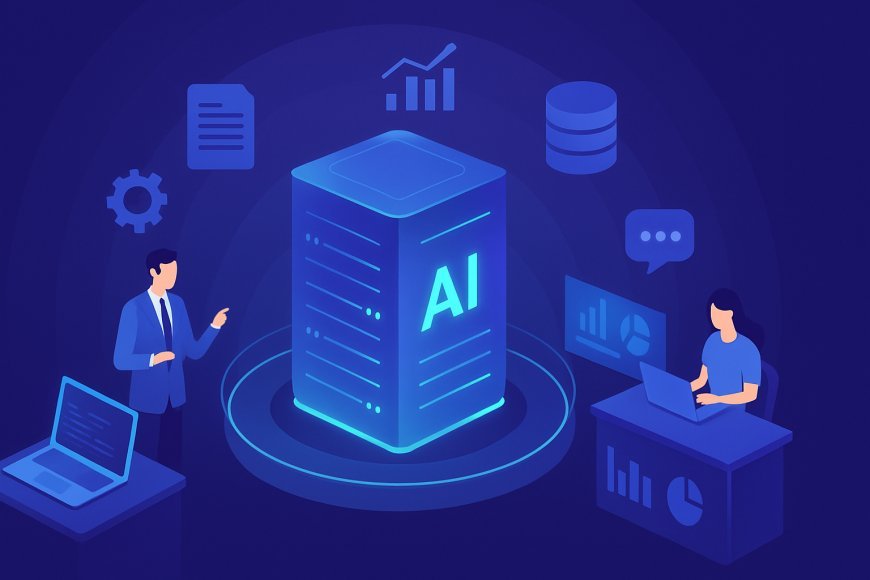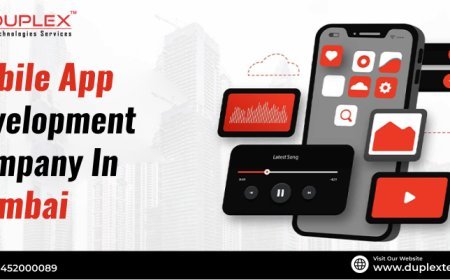Why Your Business Needs Custom LLM Development in 2025

Artificial Intelligence is no longer a futuristic concept—it's an operational necessity. As we move into 2025, businesses across industries are accelerating their adoption of AI to automate processes, enhance customer engagement, and drive data-backed decision-making. Among the most transformative advancements is the rise of Large Language Models (LLMs). While general-purpose models like ChatGPT and Claude have reshaped productivity and communication, enterprises are increasingly shifting toward custom LLM development—a strategic move that ensures AI solutions align with unique goals, workflows, and compliance standards.
Custom LLMs represent a powerful alternative to generic AI tools. These models are tailored using proprietary data, domain-specific knowledge, and business-specific logic, giving companies a competitive edge in the age of intelligent automation. This blog explores why custom LLM development is becoming a must-have for businesses in 2025.
The Limitations of Off-the-Shelf Language Models
Off-the-shelf LLMs provide fast deployment and impressive out-of-the-box capabilities. However, these pre-trained models often fall short when it comes to aligning with the nuanced needs of a business. Generic LLMs are trained on publicly available datasets, which means they lack exposure to your internal documentation, customer queries, compliance protocols, and product-specific data.
This results in several limitations—contextual errors, vague or inaccurate responses, and a lack of brand-specific language and tone. Moreover, without fine-tuning or integration into your systems, these models cannot process internal workflows or understand proprietary business logic. For businesses that require domain precision, data privacy, or regulatory alignment, general models are insufficient.
Custom LLMs Offer Domain-Specific Intelligence
One of the most compelling reasons to invest in custom LLM development is domain specialization. By fine-tuning a base model with proprietary datasets—be it medical records, financial documents, legal texts, or technical manuals—organizations can train the model to understand industry jargon, specialized workflows, and complex scenarios that would confuse a general model.
For example, a healthcare provider can build a custom LLM to support doctors by accurately summarizing patient histories and medical guidelines. A legal firm can train an LLM to interpret contract clauses based on jurisdiction-specific rules. In both cases, accuracy, compliance, and trust are significantly improved. Domain-specific models enable high-impact use cases that directly affect operational efficiency and customer satisfaction.
Enhanced Data Privacy and Regulatory Compliance
Data privacy regulations like GDPR, HIPAA, and India’s DPDP Act require companies to handle sensitive data responsibly. Using third-party AI tools can pose risks related to data leakage, unauthorized access, or lack of transparency about how your data is used for further training.
Custom LLM development, particularly when deployed on-premise or in private cloud environments, offers full control over data pipelines. Your proprietary data never leaves the secure infrastructure, and access to model outputs can be monitored or restricted as needed. Furthermore, developers can embed compliance policies directly into the model's logic, ensuring it adheres to regulatory frameworks specific to your industry or geography.
In 2025, businesses cannot afford to gamble with data security—and custom LLMs help mitigate those risks effectively.
Workflow Automation Tailored to Your Business Logic
Generic LLMs can help draft emails, summarize documents, or answer basic questions—but they cannot automate the complex workflows that power your business. Custom LLMs, however, can be integrated into internal systems such as CRMs, ERPs, knowledge bases, and custom-built applications. This enables businesses to automate not just content generation but also decision-making workflows, process optimization, and customer interactions.
For example, a fintech company might build a custom LLM to automatically flag suspicious transactions based on historic fraud patterns. A real estate firm could use a custom model to analyze zoning regulations, property data, and investment criteria before suggesting potential acquisitions. By embedding the model into business logic, companies turn LLMs from passive assistants into active digital agents.
Competitive Differentiation Through Proprietary AI
As AI becomes widely available, competitive differentiation will depend not on access to AI—but on how uniquely and effectively it is applied. Businesses that build proprietary LLMs gain a powerful edge: they own a strategic technology asset that reflects their brand voice, decision logic, and operational know-how.
This differentiation is especially valuable for B2B enterprises where customer experience, precision, and trust are paramount. For example, a consulting firm with a custom-trained LLM can provide intelligent, real-time guidance to clients across industries. An e-learning platform can personalize content delivery based on user behavior and learning styles. The more uniquely tailored the LLM, the more irreplaceable your solution becomes in the eyes of your customers.
Long-Term Cost Efficiency and Scalability
At first glance, building a custom LLM may seem expensive compared to using open APIs. But over time, custom models can actually be more cost-effective. Businesses avoid recurring usage fees tied to commercial APIs and gain the flexibility to optimize the model's inference costs based on performance requirements.
Moreover, once a base LLM has been trained, it can be incrementally updated with new data or fine-tuned for additional departments or use cases. This modularity means businesses can scale their AI capabilities without starting from scratch for each initiative. Over time, the return on investment increases as the model supports more workflows, products, and teams.
Personalization for Better Customer Experiences
Today’s customers expect personalized interactions—whether they’re speaking to a chatbot, receiving a product recommendation, or navigating support documentation. Custom LLMs enable businesses to meet these expectations with AI that understands customer segments, tone preferences, and past behaviors.
For example, a travel platform can deploy a custom model that tailors trip recommendations based on user preferences and booking history. An insurance company can deliver customized policy explanations depending on the client’s profile. Unlike off-the-shelf models that deliver one-size-fits-all responses, custom LLMs enhance engagement and build stronger relationships.
Integration With Existing Infrastructure and Tools
Another key advantage of custom LLM development is seamless integration. Businesses can connect their language model to internal tools, databases, and third-party APIs. This allows the model to pull real-time information, act on backend systems, and deliver responses that reflect live business operations.
Consider a retail brand integrating its custom LLM into inventory systems. The model can instantly inform customers whether a product is in stock, suggest alternatives, and even trigger reordering processes when inventory drops. This kind of deep integration turns the model from a chatbot into an intelligent operations partner.
Custom development also enables businesses to build intuitive frontends, such as AI dashboards or agent interfaces, that present the model’s capabilities in a user-friendly format for employees and clients alike.
Future-Proofing Your Business in the Age of AI
LLMs are evolving fast, with breakthroughs in multi-modal learning, real-time interaction, and agent-based orchestration. Businesses that begin custom development now are better positioned to adapt to these changes. They’ll already have the infrastructure, datasets, and internal capabilities needed to extend or upgrade their models as new innovations emerge.
In contrast, companies that remain reliant on external APIs may find themselves constrained by pricing changes, model limitations, or lack of control over feature rollouts. Future-proofing your AI investments requires autonomy—and custom development offers precisely that.
Additionally, businesses that own their AI pipelines will be more resilient to geopolitical, legal, or market disruptions that could affect third-party providers.
Real-World Success Stories: What Leading Companies Are Doing
Leading enterprises are already proving the value of custom LLM development. Goldman Sachs is exploring LLMs tailored for financial research and compliance analysis. Salesforce introduced AI Cloud with Einstein GPT, enabling customers to train models on their CRM data. Healthcare organizations are building models to assist with diagnosis, patient communication, and medical research—all while staying compliant.
These examples highlight that businesses that invest in tailored LLMs are not just following a trend—they are setting the direction for industry transformation.
Conclusion: Custom LLMs as Strategic Business Assets
In 2025, the AI race won’t be won by those who adopt the most tools, but by those who build the most strategic solutions. Custom LLM development allows businesses to move beyond generic AI and toward purpose-built systems that understand their domain, protect their data, and drive operational excellence.
Whether your goal is to automate internal workflows, enhance customer interactions, or create entirely new AI-powered products, custom LLMs provide the flexibility, security, and precision needed to succeed.
The time to act is now. Building your own language model may sound complex, but with the right development partner and a clear strategic vision, it becomes an investment that pays dividends across every department of your organization.
What's Your Reaction?































































